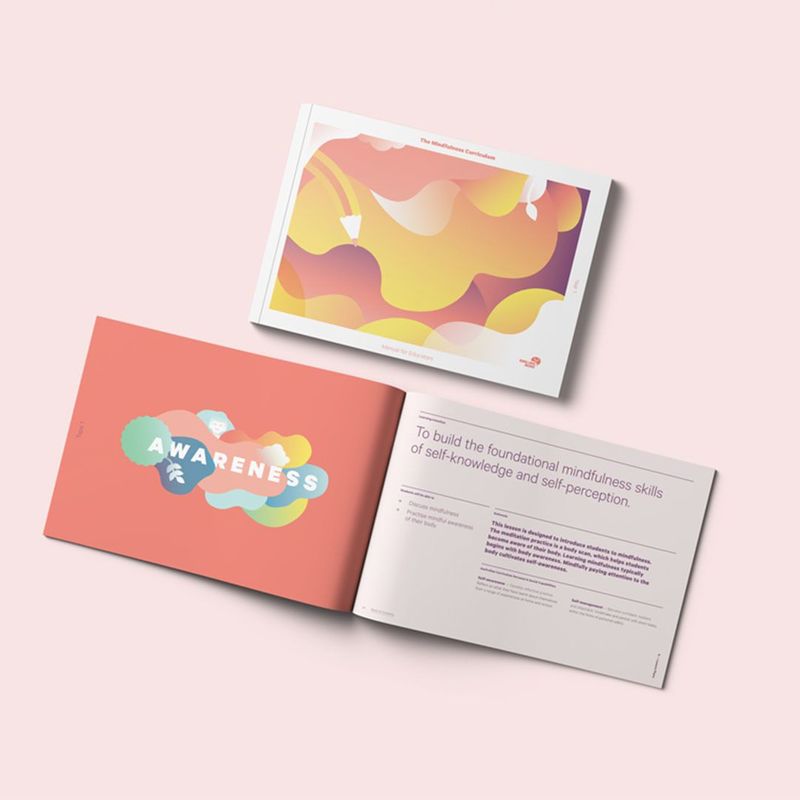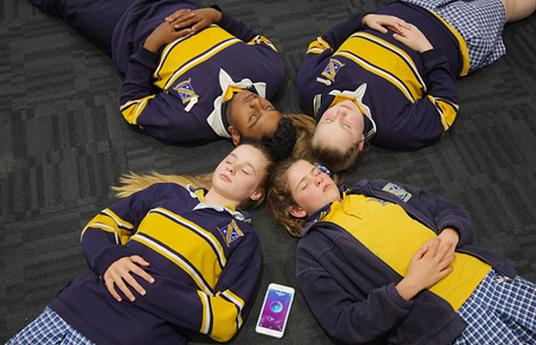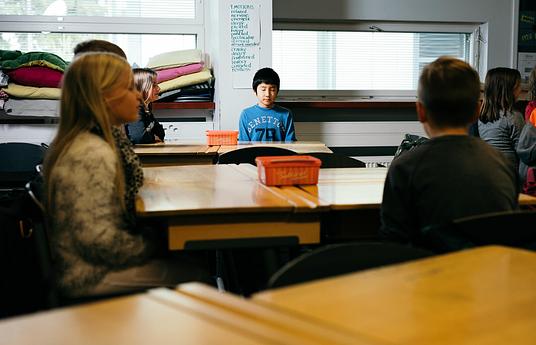Many students across Australia have returned to school for Term 2 to find that the calm and relaxed mindset associated with the holidays doesn’t have to end at the classroom doors. Thanks to a collaboration between leading educators, psychologists and mindfulness experts, schools can now access Australia’s first dedicated mindfulness curriculum to put mental health and wellbeing at the heart of the school day.
This exciting initiative is led by the team behind Australian mindfulness meditation app Smiling Mind, used by over 40,000 educators worldwide and selected as one of HundrED’s 100 Inspiring Global Innovations. The evidence-based Mindfulness Curriculum has been created to support a whole school and community approach to wellbeing, and has resources for educators, parents and students.
Teaching children how to take proactive steps to protect their mental health couldn’t be more important. Around 25% of young people in high income countries have an identifiable mental health problem and this can affect all areas of their life, including school. Many Australian schools are already taking an active role to address mental health issues in students through wellbeing programs and social emotional learning.
With up to 20% of Australian students currently disengaged at school, research shows that mindfulness (the act of paying attention to the present moment with openness, curiosity and without judgement) can help young people develop the emotional, behavioural and attention regulation skills vital for success in school and later life. Using the new Mindfulness Curriculum, teachers are empowered with the tools to make mindfulness and wellbeing a part of everyday school life. Co-developed by educators, psychologists and mindfulness experts, The Mindfulness Curriculum offers a structured but flexible framework which can be used as a comprehensive and stand-alone social and emotional learning program or can be adapted to complement existing wellbeing programs used in school.
The curriculum is centred on 20 topics, including resilience, growth mindset and positive relationships, mapped to the Australian Curriculum. This evidence-based framework supports students in Year 1 to Year 6 to develop self awareness, self management, social awareness and social management skills. It’s designed to be easy to use and contains practical resources to be used in lessons, along with classroom and take-home activities to be used in conjunction with the free Smiling Mind app.

Using mindfulness based lessons, schools can explore these topics in a consistent way to provide practical skills and strategies that can support good mental health and wellbeing in school and throughout life.
Smiling Mind CEO Dr Addie Wootten, one of the developers of the curriculum, explained why this new approach to mental health in schools is so important. “Research shows that one in five students are disengaged at school, and disengaged students are on average one to two years behind their peers,” Dr Wootten said. “What’s more, our students are facing serious mental health issues, with one in seven primary aged students reporting mental health problems .”
Practising mindfulness has been shown to have many benefits for students, including increased self-awareness, emotional management and relationship skills, as well as improved attention, concentration and decision making skills. In fact, a regular mindfulness practise can benefit both students and educator engagement and can impact the whole school, with teachers experiencing less stress, more sleep, more engagement with parents, and increased job satisfaction.
“We can’t underestimate how fundamental the skills that mindfulness can develop are in the learning process,” Dr Wootten said. “Mindfulness helps students develop the very skills that promote better mental health and school engagement, as well as foundational skills of attention and concentration. Not only are these skills essential for learning but they prepare our children to better manage with work-life challenges in the future.”

If you’d like to learn more about the Mindfulness Curriculum, visit the Smiling Mind site, or to learn about how to implement Smiling Mind in your school, wherever you are in the world, head to the Innovation Page.


